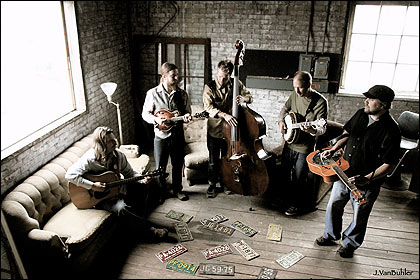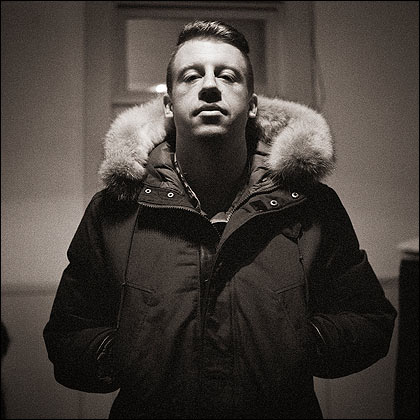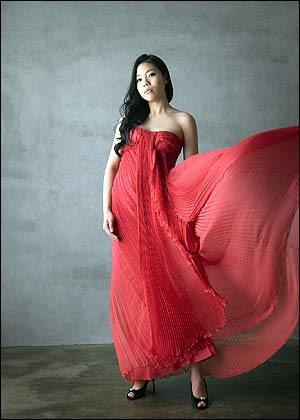
Acoustica!
 |
| photo by J. Vanbuhler |
That inherently colorless Northwest winter is coming. There’s no vitamin D to be had, and likely you’ll feel like sitting inside drinking tea until your body gets used to the cold. What an interesting turn of events it is, though, that Greensky Bluegrass (pictured)should come through town just as the chills and rain begin to set in. This band’s music sounds like looking out a window at the rain beating everything around it into soggy oblivion; but there’s a plucky twang in the background to remind you that this is just a seasonal thing.
The smoothness of bluegrass is often hard to wrap the mind around — especially considering the fact that much of the genre’s subject matter is as coarse and croaky as a night of cigarettes and bourbon. Greensky Bluegrass manages to keep alive all the charms of traditional bluegrass in the very act of destroying it — in a good way. Seriously, when was the last time you heard a bunch of orchestral horns backing a traditional bluegrass song?
Greesky Bluegrass continues the contemporary, cascading waterfall sound that groups like the Flecktones and Dave Matthews Band made popular, while still penning lyrics like “I’d probably kill you if I wasn’t already wasted.” And even when the smoothness gets a little heady and you’re starting to feel like you might be getting cold again, the band manages to get the crowd out of their seats and stomping around, so no worries, yo.
On a note more pertinent where stomping is concerned, The Devil Makes Three also make an appearance in Eugene this week, and if any of you are outside braving the rain and want to stay warm, this band knows how to throw down a rabble-rouser.
So what do the cold and the damp mean for your winter listening? It shouldn’t change a thing. Get off your couch and go jig to some smooth-ass bluegrass. The rain will still be waiting for you when the shows are over.
Greensky Bluegrass and Hot Buttered Rum play 8 pm, Thursday, Nov. 17, at McDonald Theatre; $17 adv., $20 door. The Devil Makes Three plays 8:30 pm, Friday, Nov. 18, at McDonald Theatre; $17.50 adv., $20 door. — Andy Valentine
Ages of Bliss
Elliott Smith just went hippie. OK, so it might be sacrilege to say such things about the Northwest icon. But it seems that Portland’s AgesandAges front man Tim Perry is the reincarnation of Smith who, having risen from the dead, decided it most prudent to drop a sheet of acid. He can see himself now — outside of his former solipsism — as he melds his voice with the disharmonic tones of six other individuals.
Perry grasps the microphone in angst with pressed fingers — blood rushing to the digits — and regurgitates lyrics of happiness, harmonizing willingly with the other members of the Portland sextet. There is some reservation in that happiness. Perry’s eyes hold a look of skittish distrust — darting back and forth — even as he sings about prancing off to Neverland.
Perhaps it comes from Perry’s experience with the tenuous nature of indie bands — his last group, Psuedosix, immolated in a heap of flames. When Perry decided to revisit music, he vowed to find only players gung-ho and joyful about making music, a departure from Portland’s archetypal apathetic musician. Call it an Edward Sharpe transformation or an Elliott Smith post-acid trip, but Perry has changed things up for the better.
And things really are looking up. Handclaps and tambourine jangles abound on the band’s new album, and its optimism creates a refreshing sound capable of cracking clouds during dark Northwest winters.
AgesandAges and Fruit Bats play 9 pm Thursday, Nov. 17, at WOW Hall; $12 adv., $14 door. — Andrew Hitz
The Mack is Back
 |
| photo by Todd Cooper |
“Remember that guy I keep telling you about that has hot-as-balls white boy swag that you keep ignoring me about?” This is the first sentence that comes to mind when I think of hip hop artist Macklemore.
Born Ben Haggerty in Seattle, Wash., Macklemore began his music career by presenting rap to troubled teens as an alternative form of self-expression. He slung beats to kids in a Chehalis, Wash., juvenile detention center until the early 2000s. His first full-length album, The Language of My World, dropped in 2005. This joint cemented Macklemore’s style as a spoken-word storytelling/rap/hip-hop hybrid.
After overcoming an addiction to OxyContin and cough syrup, Macklemore teamed up with producer Ryan Lewis in 2008, and together they released The Unplanned Mixtape and The VS. EP. Lewis and Macklemore have been a cohesive unit ever since. The VS. EP draws intensely from Macklemore’s personal experiences and paints pictures clearer than a storybook. There is no interpretation where Macklemore is concerned; his lyrics are literal and true. The intro of “Otherside” goes so far as to sample from actual broadcast news.
Macklemore isn’t all harsh realities. “And We Danced (feat. Ziggy Stardust),” from The Unplanned Mixtape, sounds like an Irish rap drinking song with a fun-loving chorus. “And we danced/and we cried/and we laughed/and had a really, really, really good time.” It leans heavily toward farce and rings of early Eminem, but it’s still damn catchy.
Macklemore plays 9 pm Saturday, Nov. 19, at WOW Hall; Sold out. — Natalie Horner
Sounds of War
 |
As America’s misguided Middle Eastern wars finally recede — we hope — the Eugene Symphony embarks on an ambitious three-week program examining the U.S. response to war. On Nov. 17, at the Hult Center’s Silva Hall, the ESO performs one of the most powerful wartime orchestral works, Dmitri Shostakovich’s formidable Symphony No. 7, written in the immediate wake of the 1941 German invasion of the Soviet Union. The program also includes Rachmaninov’s Rhapsody on a Theme of Paganini, starring one of the most acclaimed young pianists of her generation, 25-year-old Korean born Joyce Yang (pictured). The concert is preceded by a free performance (by ESO and UO faculty performers) at the Hult, one of the great 20th-century chamber works, Shostakovich’s searing String Quartet #8, which honors victims of war and totalitarianism.
Nov. 22, the ESO performs what’s become the first “official” musical response to the Sept. 11 attacks, American composer John Adams’s moving On the Transmigration of Souls, commissioned by the New York Philharmonic. This strong American music program also features William Schuman’s New England Triptych and two works by Aaron Copland: The Promise of Living, a beautiful excerpt from his opera, The Tender Land, and (commemorating the 150th anniversary of the commencement of the War between the States) Lincoln Portrait, with guest narrator Tom Brokaw intoning the great war president’s words; the former NBC news anchor will also give a lecture before the performance. The symphony’s admirable War + Peace program includes other community events, talks, even an essay contest — for more details go to the symphony’s website, eugenesymphony.com — Brett Campbell